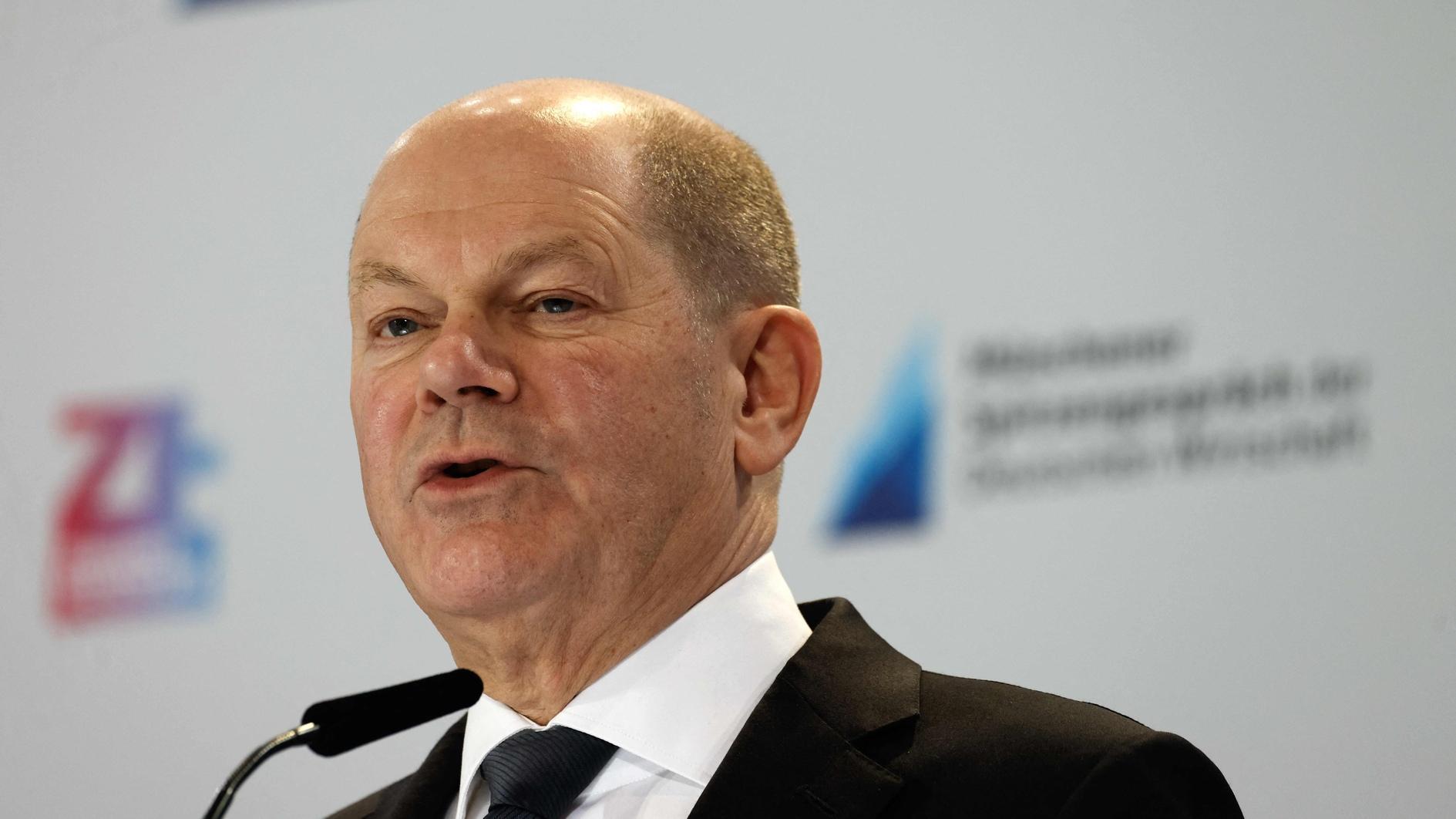
German Chancellor Olaf Scholz on Saturday promised a full investigation after what appeared to be a recording of confidential army talks on the Ukraine war was posted on Russian social media, in a potentially huge embarrassment for Berlin.
The head of Russia's state-backed RT channel, Margarita Simonyan, on Friday posted the 38-minute audio recording of what she claimed were German army officers on February 19 discussing striking Crimea.
"What is being reported is a very serious matter and that is why it is now being investigated very carefully, very intensively and very quickly," Scholz said on a visit to Rome.
In the recording, discussions can be heard on the possible use by Ukrainian forces of German-made Taurus missiles and their potential impact.
Topics include aiming the missiles at targets such as a key bridge over the Kerch strait linking the Russian mainland to Crimea, which was annexed by Russia in 2014.
The discussions also cover the use of missiles provided to Kiev by France and Britain.
Experts consulted by Der Spiegel magazine said they believed the recording was authentic.
A defence ministry spokeswoman told AFP it was investigating "whether communications in the air force sector were intercepted".
'Sworn enemies'
Kiev has long been clamouring for Germany to provide it with Taurus missiles, which can reach targets up to 500 kilometes (about 300 miles) away.
Scholz has so far refused to send the missiles, fearing that it would lead to an escalation of the conflict.
"If this story turns out to be true, it would be a highly problematic event," Green party politician Konstantin von Notz told the RND broadcaster.
"The question arises as to whether this is a one-off incident or a structural safety problem," he added.
Speaking at the Antalya Diplomacy Forum in Türkiye on Saturday, Russian Foreign Minister Sergei Lavrov said the recording indicates that Ukraine and its backers "do not want to change their course at all, and want to inflict a strategic defeat on Russia on the battlefield".
Foreign ministry spokeswoman Maria Zakharova demanded that Germany "promptly" provide explanations for the discussion.
"Attempts to avoid answering the questions will be regarded as an admission of guilt," she said.
"Our age-old rivals — the Germans — have again turned into our sworn enemies," former Russian president Dmitry Medvedev, now deputy head of the Security Council and the foreign ministry, wrote in a Telegram post.
Taurus missiles
The acquisition of German Taurus missiles would provide a massive boost for Ukraine as Kiev struggles to fend off Russia's invasion.
France and Britain have supplied Kiev with SCALP or Storm Shadow missiles, both of which have a range of about 250 kilometres.
But Scholz said last week that Germany could not justify matching British and French moves in sending long-range missiles to Ukraine and supporting the weapon system's deployment.
"This is a very long-range weapon, and what the British and French are doing in terms of targeting and supporting targeting cannot be done in Germany," Scholz said, without specifying exactly what he meant.
Britain denied that it had any direct involvement in operating the missiles.
"Ukraine's use of Storm Shadow and its targeting processes are the business of the Armed Forces of Ukraine," a Ministry of Defence (MoD) spokesperson said in a statement to AFP.
Roderich Kiesewetter, from Germany's opposition conservatives, warned that further recordings may also be leaked.
"A number of other conversations will certainly have been intercepted and may be leaked at a later date for Russia's benefit," he told broadcaster ZDF.
It can be assumed "that the conversation was deliberately leaked by Russia at this point in time with a specific intention", namely "to prevent Taurus delivery by Germany", he said.
According to Der Spiegel, the videoconference was held not on a secret internal army network but on the WebEx platform.